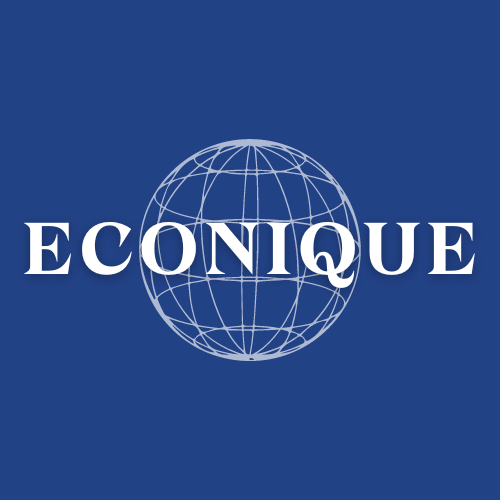Afina Mamedova | 29.04.2025
How did Fashion Affect Korea's Economy?

Over the last two decades, fashion has evolved as one of South Korea's most vibrant cultural and commercial exports. By combining traditional Korean aesthetics such as hanbok-inspired silhouettes with modern, streetwear-inspired designs, the fashion industry has grown into a powerful economic engine. As the global wave of Korean culture, known as Hallyu, gained traction through K-pop, K-dramas, and social media influencers, South Korean fashion soon established a distinct character that appeals to global customers.
This international recognition has resulted in a significant increase in both local consumption and foreign exports. According to a report by the Korea Federation of Textile Industries, South Korea's fashion and textile exports will exceed $15 billion in 2023, representing a consistent yearly growth rate of over 5%. Key export markets include China, the United States, Japan, and portions of Southeast Asia, where demand for Korean fashion labels such as Stylenanda, Pushbutton, and Ader Error is increasing.
Fashion has a broader economic impact than just retail sales. It drives associated industries including textiles, garment manufacture, cosmetics, and tourism. As more international tourists visit South Korea, many identify fashion and shopping experiences, particularly in districts such as Myeongdong, Gangnam, and Dongdaemun, as top reasons to visit. According to the Korean Tourism Organisation, fashion-conscious travellers spend 20-30% more on average than normal tourists, which benefits both local companies and the overall economy.
Another important factor is celebrity impact. Collaborations between fashion labels with global K-pop icons such as BLACKPINK, BTS, and NewJeans have resulted in significant customer interest and spending. For example, when BTS member Jimin was made a Dior ambassador, the business saw an increase in sales and social media engagement in Asia and Europe. Such endorsements have transformed Korean musicians into cultural and commercial multipliers, catapulting local fashion firms to global prominence.
The South Korean government has actively encouraged the expansion of this sector. The government helps designers and brands scale globally through initiatives such as Seoul Fashion Week, startup finance programs, and export promotion awards. Seoul Fashion Week, now a regular event on the global fashion calendar, has drawn buyers, reporters, and influencers from all over the world, cementing Korea's status as a fashion-forward nation.
Additionally, fashion education and innovation are being prioritised. Top universities like Ewha Womans University and Hongik University are creating world-class designers who are driving the transition to sustainability, digital fashion, and gender-neutral design. South Korea is also emerging as a hub for tech-integrated fashion, such as wearable tech and AI-assisted design, which strengthens its worldwide competitiveness.
Looking ahead, the Korean fashion sector is expected to continue its rising trend. South Korea can boost its global fashion powerhouse status by embracing sustainable practices, digital transformation, and inclusive marketing techniques. This, in turn, can help to create jobs, increase exports, and promote cultural diplomacy, so boosting both soft power and economic prosperity.
This international recognition has resulted in a significant increase in both local consumption and foreign exports. According to a report by the Korea Federation of Textile Industries, South Korea's fashion and textile exports will exceed $15 billion in 2023, representing a consistent yearly growth rate of over 5%. Key export markets include China, the United States, Japan, and portions of Southeast Asia, where demand for Korean fashion labels such as Stylenanda, Pushbutton, and Ader Error is increasing.
Fashion has a broader economic impact than just retail sales. It drives associated industries including textiles, garment manufacture, cosmetics, and tourism. As more international tourists visit South Korea, many identify fashion and shopping experiences, particularly in districts such as Myeongdong, Gangnam, and Dongdaemun, as top reasons to visit. According to the Korean Tourism Organisation, fashion-conscious travellers spend 20-30% more on average than normal tourists, which benefits both local companies and the overall economy.
Another important factor is celebrity impact. Collaborations between fashion labels with global K-pop icons such as BLACKPINK, BTS, and NewJeans have resulted in significant customer interest and spending. For example, when BTS member Jimin was made a Dior ambassador, the business saw an increase in sales and social media engagement in Asia and Europe. Such endorsements have transformed Korean musicians into cultural and commercial multipliers, catapulting local fashion firms to global prominence.
The South Korean government has actively encouraged the expansion of this sector. The government helps designers and brands scale globally through initiatives such as Seoul Fashion Week, startup finance programs, and export promotion awards. Seoul Fashion Week, now a regular event on the global fashion calendar, has drawn buyers, reporters, and influencers from all over the world, cementing Korea's status as a fashion-forward nation.
Additionally, fashion education and innovation are being prioritised. Top universities like Ewha Womans University and Hongik University are creating world-class designers who are driving the transition to sustainability, digital fashion, and gender-neutral design. South Korea is also emerging as a hub for tech-integrated fashion, such as wearable tech and AI-assisted design, which strengthens its worldwide competitiveness.
Looking ahead, the Korean fashion sector is expected to continue its rising trend. South Korea can boost its global fashion powerhouse status by embracing sustainable practices, digital transformation, and inclusive marketing techniques. This, in turn, can help to create jobs, increase exports, and promote cultural diplomacy, so boosting both soft power and economic prosperity.


